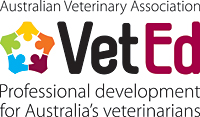Online Leadership Training
Develop your team’s leadership skills and raise your bottom line.
Leadership ProSkills
One-off short courses you can purchase individually or bundled in a ProSkills Subscription.
Leadership Intelligence
A comprehensive multi-module online program, completed at your own pace over a 12 month period.
Is Leadership Intelligence For Me?
Empower your veterinary leaders with our Leadership Intelligence Course! Tailored specifically for the veterinary industry, this course equips emerging leaders with essential skills to navigate the complexities of practice management with confidence. Through a blend of strategic insights and practical exercises, participants will learn to foster effective communication, drive team engagement, and develop a resilient mindset.
Ideal for those aspiring to lead or currently in leadership roles, the Leadership Intelligence Course provides the tools and support needed to lead teams, build trust with clients, and make impactful decisions that elevate your practice. Invest in the future of your clinic by building leaders who inspire and succeed!
Leadership remains a popular topic in both academic institutions and in the mainstream media. Politicians, world leaders and those in managerial positions are often scrutinised to determine whether they will be a ‘strong leader’. Interestingly, the characteristics of ‘strong leadership’ cannot be so clearly defined.
This module has been developed to introduce participants to the broad range of leadership theories and applications. By the end of this module, participants should be able to:
- Describe the desirable characteristics of a modern leader
- Understand the types of leadership styles
- Determine the difference between leadership and management
- Understand and apply situational leadership theory
- Understand how emotional intelligence influences leadership
Key attributes within any natural born leader include such distinctiveness as values, character, motives, habits, traits, competencies, style, behaviour and skills. Leadership styles and qualities will differ and will be essentially influenced by the core of the personality of the leader. The important mark here however, is that leaders must be role models for others, outwardly displaying high standards of professional and ethical behaviour. Such aspects must be learned as they do not come naturally to all leaders. They must be constantly developed and enhanced. This module is designed with a focus on self-awareness. To improve, we must know where we are in the here and now.
This module has been developed to enable participants to identify the practical knowledge, skills and strategies they need to grow in their leadership role. By the end of this module, participants should be able to:
- Determine the meaning of ‘leadership intelligence’
- Broaden your knowledge of emotional, character and wisdom intelligence and apply it to a variety of leadership situations
- Understand wellbeing and identify strategies for thriving as a leader
- Complete a Personal Leadership Development Plan
Adults bring to the workplace their own experiences and knowledge, their own intentions and their own set of patterned behaviours (Eraunt 2000). As such, effective leaders must use flexible communication and behaviour techniques to build relationships with their teams.
At the heart of leadership is the ability to communicate effectively. Good leaders facilitate conversations with their team as well as share strategies, policies, objectives and other organisational information.
This module has been developed to enable you to identify the specific communication skills that are useful as a leader. By the end of this module, you should be able to:
- Understand communication as a process
- Understand and practice assertive communication
- Identify and utilise six core communication skills
- Increase your communication flexibility to overcome communication challenges with team members
- Adapt communication for diversity and inclusivity in the workplace
Supervisors spend more than 25% of their time on conflict management, and managers spend more than 18% of their time on relational employee conflicts. This has doubled since the 1980s. Reasons for this include the growing complexity of organisations, use of teams and group decision-making. In interpersonal relations conflict is as natural as breathing. Conflict can happen for many reasons and present in many ways. It is actually avoiding the management of conflict that creates the chaos and confusion in workplaces. Most often, ignoring conflict ultimately leads to low morale and dysfunctional behaviour.
This module has been developed to enable participants to understand conflict and develop greater capacity to resolve conflict in their team. By the end of this module, participants should be able to:
- Identify and plan for crucial conversations
- Understand how conflict arises
- Identify your style in conflict
- Learn the preparation skills for resolving conflict and addressing issues
- Learn the communication skills for mediating conflict between team members
- Manage emotions during resolution meetings
Performance management is a comprehensive approach to cultivating a motivated, skilled, and high-performing team. Through targeted coaching and development, it empowers team members to grow, excel, and align with the goals of the practice. Effective performance management goes beyond routine evaluation; it’s about fostering a culture of continuous improvement, where each team member is supported to make meaningful contributions that enhance both profitability and workplace culture.
This module has been developed to enable you to identify the specific communication skills that are useful as a leader. By the end of this module, you should be able to:
- Understand the importance of performance management and fostering ‘talent’
- Identify the skills and processes for effective induction
- Implement coaching programs for post-probation team members
- Identify and utilise informal and formal performance management systems
For organisations aiming to thrive in a constantly evolving environment, strong change and project management skills are essential. Effective leaders in these areas not only handle the planning, documentation, and coordination needed to drive projects forward but also provide the vision and motivation to inspire their teams. By mastering change and project management, leaders can guide their teams through transitions smoothly, ensuring that goals are met with clarity, purpose, and a shared commitment to innovation and success.
This module has been developed to enable you to identify the specific skills that are useful for leading change and managing priorities at work. By the end of this module, you should be able to:
- Understand why change can be unsettling to team members
- Confidently plan and execute practice projects using a structured method
- Use structured change management tools
- Manage resistance to change
- Plan, execute, and manage projects effectively
Program Details
Who should undertake this program?
Veterinarians, Practice Managers, Supervisors
Your Investment: $880.00 AUD
Nominal Duration: 18 hours
Enrollment Duration: 12 months
Program Includes:
- Downloadable notes for each module
- Lessons and activities
- Self-assessments
- Certificate of achievement
Continuing Education Points
 The National Industry Advisory Group for Veterinary Nursing has allocated 18 CPD points to this continuing education activity.
The National Industry Advisory Group for Veterinary Nursing has allocated 18 CPD points to this continuing education activity.
 This program is eligible for 8.5 AVA Vet Ed points.
This program is eligible for 8.5 AVA Vet Ed points.
More About Leadership Courses
If you’re looking for specific teachings without the commitment of a multi-module course, then our ProSkills courses may interest you. Some popular Leadership courses include:
- Mediation Skills for Resolving Conflict
- Coaching & Mentoring Team Members
- How to Run a Team Meeting
- Human Resource Essentials
- Inducting New Employees
ProSkills courses are one-off short courses you can purchase individually or access all courses, all year via a ProSkills Subscription. Browse the shop for more.
Get in touch to see how your business can benefit with CCG
Talking to us is about discovery, find out how can help you.

